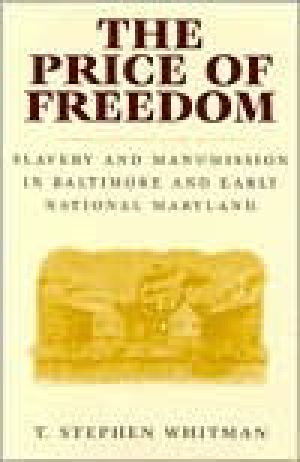Price of Freedom

- Authors
- Whitman, T. Stephen
- Publisher
- University Press of Kentucky
- ISBN
- 9780813120041
- Date
- 1997-02-27T00:00:00+00:00
- Size
- 0.51 MB
- Lang
- en
Paradoxically, in the decades following the Revolution, slavery in Baltimore gained strength even as slaves were being freed in record numbers. The vigorous growth of the city required the exploitation of rural slaves with craft skills. To prevent them from escaping and to spur higher production, owners entered into arrangements with their slaves, promising eventual freedom in return for many years of hard work. This was a practical, not a philanthropic arrangement; following the release of one group of slaves, owners would simply purchase additional ones. This practice of "term slavery" created a labor force affordable to small craftsmen and manufacturers and directly contributed to the urban development of the country's third largest city. Newly freed slaves, driven by debts contracted in purchasing freedom, remained dependent upon their former masters for employment. The freeing of blacks in rural Maryland and their migrations to Baltimore to work and save in order to aid still-enslaved kin supplied the city with even more free black workers.